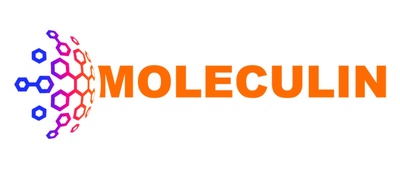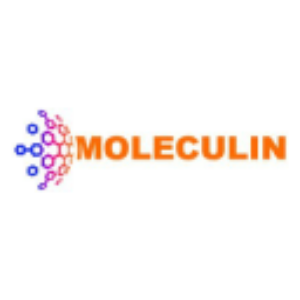Moleculin Announces Commencement of NIH-Funded Phase 2 Clinical Trial of STAT3 Inhibitor for the Treatment of Glioblastoma (NU 21C06)
Moleculin Biotech has announced the start of a Phase 2 clinical trial evaluating WP1066 in combination with radiation therapy for glioblastoma, in collaboration with Northwestern University.
The trial, funded by the NIH and BrainUp, is aimed at improving treatment options for glioblastoma, which has a median survival rate of 15 months.
WP1066 has shown promise in animal models, demonstrating both therapeutic responses and immune 'memory' effects. This trial will focus on progression-free survival and tumor microenvironment analysis.
Moleculin's WP1066 is designed to activate immune responses and inhibit important oncogenic transcription factors involved in tumor survival and proliferation. The company has also received Orphan Drug Designation for WP1066 for brain tumors and Rare Pediatric Disease designation for other pediatric indications.
- Commencement of Phase 2 trial for WP1066 in collaboration with Northwestern University.
- Funding secured from NIH and BrainUp.
- WP1066 has shown significant therapeutic responses in glioblastoma animal models.
- Focus on progression-free survival and tumor microenvironment analysis.
- Orphan Drug Designation and Rare Pediatric Disease designation for WP1066.
- Glioblastoma has a median survival rate of only 15 months.
- Survival rate for glioblastoma has not changed significantly in the past three decades.
- The trial's success is still uncertain and depends on human subject results.
Insights
The initiation of the Phase 2 clinical trial involving WP1066 combined with radiation therapy for glioblastoma is a significant development in the oncology field. Glioblastoma remains one of the most challenging cancers to treat with a high mortality rate and limited effective treatments. WP1066 targets several oncogenic transcription factors like p-STAT3, c-Myc and HIF-1α, which are essential for tumor cell survival and proliferation. The combination of this drug with radiation could potentially enhance therapeutic outcomes by both directly attacking the tumor cells and modulating the immune response. The fact that this trial is funded by NIH and a non-profit organization further underscores its importance and potential impact.
Short-term, the commencement of this trial reflects progress in the development of new treatment modalities for glioblastoma, potentially leading to more effective therapies. Long-term, successful results from this trial could pave the way for more comprehensive cancer treatment regimens that not only tackle the tumor but also engage the immune system, creating a more holistic approach to cancer care.
From a financial perspective, the start of this Phase 2 trial represents a pivotal moment for Moleculin Biotech, Inc. If WP1066 demonstrates efficacy in human trials, it could substantially elevate the company's market position and attract more investment. The previous preclinical data showing significant anti-tumor activity in animal models bodes well for the potential success of this trial. Moreover, the funding from NIH and BrainUp reduces financial risk, showing confidence from reputable institutions in the potential of WP1066.
In the short-term, this announcement might boost investor confidence and positively impact Moleculin's stock value. Long-term, a successful trial could lead to commercialization opportunities, especially given the Orphan Drug Designation for WP1066, which offers benefits like market exclusivity. However, investors should remain cautious as clinical trials are inherently uncertain and involve considerable risk.
The commencement of this trial indicates Moleculin's strategic focus on addressing a significant unmet need in the oncology market. Glioblastoma has a dismal survival rate and a high incidence, making it a critical target for new therapeutic interventions. The market for glioblastoma treatments is vast given the limited efficacy of existing therapies. Moleculin’s WP1066, if successful, could capture a significant market share and potentially become a new standard of care, especially given its novel mechanism targeting immune and transcription modulators.
Short-term, the news could generate positive sentiment and market interest in Moleculin, reflecting optimism about their innovative approach. Long-term, the treatments developed could disrupt the current market, offering new hope to patients and potentially leading to robust revenue streams for Moleculin. However, market entry will depend on successful trial outcomes and subsequent regulatory approvals.
– Investigator-Initiated Phase 2 study is being conducted at Northwestern University in cooperation with Moleculin
– Trial combines WP1066 and radiation, which demonstrated both significant therapeutic response and immune "memory" in glioblastoma animal models
Dr. Priya Kumthekar, Associate Professor and the Co-Investigator for the study commented, "There remains a significant unmet need in the treatment of glioblastoma. Based on the data seen to date, we believe that WP1066 in combination with radiation therapy has the potential to address this need and provide patients with a much-needed treatment option. We are pleased to commence this important study with Moleculin."
WP1066 is Moleculin's flagship Immune/Transcription Modulator designed to stimulate the immune response to tumors by inhibiting the errant activity of regulatory T cells while also inhibiting key oncogenic transcription factors, including p-STAT3 (phosphorylated signal transducer and activator of transcription 3), c-Myc (a cellular signal transducer named after a homologous avian virus called Myelocytomatosis) and HIF-1α (hypoxia-inducible factor 1α). These transcription factors are widely sought targets because of their role in cancer cell survival and proliferation, angiogenesis (coopting vasculature for blood supply), invasion, metastasis, and inflammation associated with tumors.
The NU 21C06 trial is a Phase 2, open-label, multi-arm trial of radiation therapy in combination with WP1066 in newly diagnosed IDH (isocitrate dehydrogenase) wild-type, MGMT-unmethylated glioblastoma patients. The primary outcome measure for the study is progression-free survival and secondary outcome measures include tumor microenvironment analysis.
"To date, WP1066 has demonstrated significant anti-tumor activity in a wide range of tumor cell lines and increased survival in multiple animal models. The combination of WP1066 with radiation in glioma models demonstrated both therapeutic responses and compelling alteration of the immune surveillance within the gliomas which we hope will be replicated in human subjects," according to Dr. Amy Heimberger at Northwestern University.
"We are continuing to evaluate WP1066 in additional indications including for the treatment of pediatric brain tumors and look forward to its continued development," added Mr. Walter Klemp, Chairman and Chief Executive Officer of Moleculin.
Glioblastoma is a common type of tumor originating in the brain. The average annual age-adjusted incidence rate of glioblastoma is 3.19 per 100,000 persons in
Moleculin has received Orphan Drug Designation for WP1066 for the treatment of brain tumors, as well as Rare Pediatric Disease designation for three other pediatric indications. For more information about the NU 21C06 Phase 2 study, visit clinicaltrials.gov and reference identifier NCT05879250.
About Moleculin Biotech, Inc.
Moleculin Biotech, Inc. is a clinical stage pharmaceutical company with a growing pipeline, including Phase 2 clinical programs, for hard-to-treat tumors and viruses. The Company's lead program, Annamycin is a next-generation anthracycline designed to avoid multidrug resistance mechanisms with little to no cardiotoxicity. Annamycin is currently in development for the treatment of relapsed or refractory acute myeloid leukemia and soft tissue sarcoma lung metastases.
Additionally, the Company is developing WP1066, an Immune/Transcription Modulator capable of inhibiting p-STAT3 and other oncogenic transcription factors while also stimulating a natural immune response, targeting brain tumors, pancreatic and other cancers, and WP1220, an analog to WP1066, for the topical treatment of cutaneous T-cell lymphoma. Moleculin is also engaged in the development of a portfolio of antimetabolites, including WP1122 for the potential treatment of viruses, as well as cancer indications including brain tumors, pancreatic and other cancers.
For more information about the Company, please visit www.moleculin.com and connect on Twitter, LinkedIn and Facebook.
Forward-Looking Statements
Some of the statements in this release are forward-looking statements within the meaning of Section 27A of the Securities Act of 1933, Section 21E of the Securities Exchange Act of 1934 and the Private Securities Litigation Reform Act of 1995, which involve risks and uncertainties. Although Moleculin believes that the expectations reflected in such forward-looking statements are reasonable as of the date made, expectations may prove to have been materially different from the results expressed or implied by such forward-looking statements. Moleculin has attempted to identify forward-looking statements by terminology including 'believes,' 'estimates,' 'anticipates,' 'expects,' 'plans,' 'projects,' 'intends,' 'potential,' 'may,' 'could,' 'might,' 'will,' 'should,' 'approximately' or other words that convey uncertainty of future events or outcomes to identify these forward-looking statements. These statements are only predictions and involve known and unknown risks, uncertainties, and other factors, including those discussed under Item 1A. "Risk Factors" in our most recently filed Form 10-K filed with the Securities and Exchange Commission (SEC) and updated from time to time in our Form 10-Q filings and in our other public filings with the SEC. Any forward-looking statements contained in this release speak only as of its date. We undertake no obligation to update any forward-looking statements contained in this release to reflect events or circumstances occurring after its date or to reflect the occurrence of unanticipated events.
Investor Contact:
JTC Team, LLC
Jenene Thomas
(833) 475-8247
MBRX@jtcir.com
1 Thakkar J, Dolecek TA, Horbinski C, Ostrom QT, Lightner DD, Barnholtz-Sloan JS, et al. Epidemiologic and molecular prognostic review of glioblastoma. Cancer Epidemiol. Biomarkers Rev. 2014;23(10):1985-96.
2 Koshy M, Villano JL, Dolecek TA, Howard A, Mahmood U, Chmura SJ, et al. Improved survival time trends of glioblastoma using the SEER 17 population-based registries. J Neuro Oncol. 2012;107(1):207-12
3 Ostrom QT, Gittleman H, Farah P, Ondracek A, Chen Y, Wolinsky Y, et al. CBTRUS statistical report: Primary brain and central nervous system tumors diagnosed in
4 De Vleeschouwer S, editor.
![]() View original content to download multimedia:https://www.prnewswire.com/news-releases/moleculin-announces-commencement-of-nih-funded-phase-2-clinical-trial-of-stat3-inhibitor-for-the-treatment-of-glioblastoma-nu-21c06-302145199.html
View original content to download multimedia:https://www.prnewswire.com/news-releases/moleculin-announces-commencement-of-nih-funded-phase-2-clinical-trial-of-stat3-inhibitor-for-the-treatment-of-glioblastoma-nu-21c06-302145199.html
SOURCE Moleculin Biotech, Inc.
FAQ
What is Moleculin Biotech's recent announcement about?
What is WP1066?
Who is funding the Phase 2 clinical trial for WP1066?
Where is the Phase 2 clinical trial for WP1066 being conducted?
What are the primary and secondary outcome measures of the WP1066 Phase 2 trial?
What designations has WP1066 received?
What has WP1066 demonstrated in preclinical studies?








